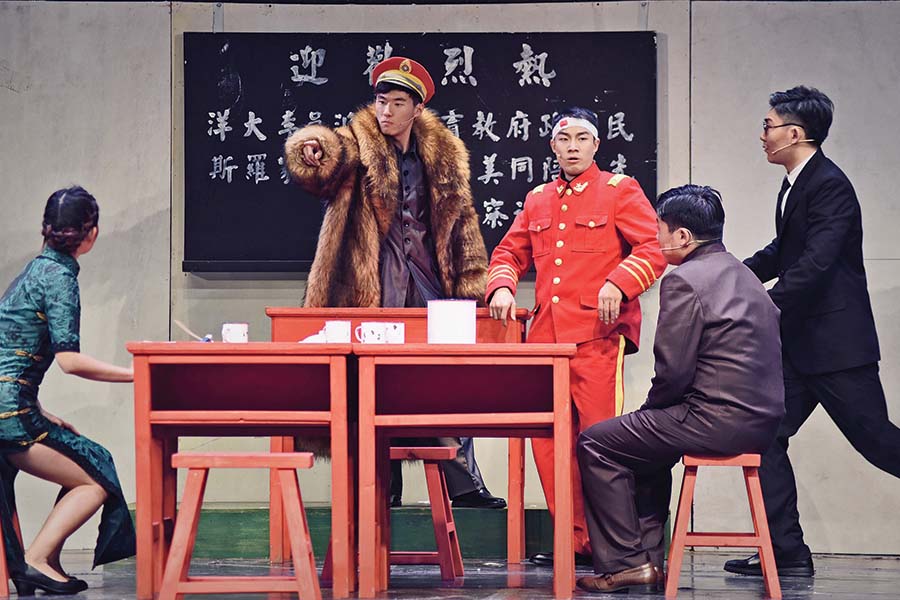How Theatre Saved Me
As an incarcerated playwright who routinely finds inspiration and support in the pages of American Theatre, I want to extend my gratitude to Leah Nanako Winkler for her article “(Really) Poor Theatre” (Feb. ’17). My situation in prison has some parallels to those who, because of their personal wealth, have the freedom to focus primarily on writing and making art: With no bills, no rent, no expenses, and no responsibilities other than an assigned prison job, I can devote as much time as I need to writing. However, that will drastically change once I return to society. As my potential release after 30 years of incarceration looms closer with each passing year, I’ve felt a growing sense of trepidation at the prospect of leaving prison. How will I continue to write as I contend with the pressing and time-consuming demands of reintegrating back into society?
Writing drama in prison has never been a means for me to “pass the time.” Winkler says that “no matter how you found theatre, chances are that it saved you,” and it certainly saved me. It’s been crucial to my development and growth as a positive, conscientious, and socially aware person. Essentially, I would have no life without writing drama. So I was encouraged (and relieved) after reading Winkler’s article. Sharing her strategies and insights, as well as those of others, for “making it work” give me the confidence that I will make it work too. Despite the difficulties I will face re-establishing myself in society as an ex-con, I’m more certain now that I will also be able to continue pursuing my passion for writing drama after release.
Keith Sanders
Ramsey Unit
Rosharon, Texas
Unpacking Chinese Theatre
I’m an MFA candidate in theatre management at Yale School of Drama, and for a while I’ve been trying to wrap my head around the Chinese theatre industry, observed from afar with the knowledge I’ve gained from two years of systematic training in American regional theatre practice. Before coming to Yale Drama, I had four years of work experience in Shanghai in the performing arts sector, yet somehow I increasingly feel that I know very little about Chinese theatre. Whenever my American cohort ask me about the theatre ecology in China, I hold myself back because I fear that my own experience and observations do not necessarily reflect the whole.
Recently I’ve been thinking about what can be done to make Chinese theatre a better place for theatre professionals, for theatregoers, and for the society at large, especially given the restrictions that are hard to bypass. Seeing Raymond Zhou’s writing (“China’s Theatre Bubble,” May/June ’17) helped me see the grand scheme of things. Though I don’t necessarily agree with all of his opinions, it helped me get closer to answering my questions on Chinese theatre.
Kathy Li
New Haven, Conn.
Now More Than Ever
I really enjoyed how you looked at the changing landscape of theatre criticism (Editor’s Note, May/June ’17). One line that struck me was, “The crisis is acute for arts journalism and especially critics, the least beloved yet in many ways the most necessary of all culture writers”—in part because I am also a critic, but also because of how truthful that statement is today. I see what is happening to arts writing not only at big-name places like The New York Times, but in smaller venues as well. I think we need arts coverage now more than ever. What is presented on the stage is largely due to what is happening in the world around us, and I strongly believe it needs to be commented on.
I thank you for voicing it, and though I don’t speak for younger critics, I like to think that they would thank you too.
Marialena Rago
Philadelphia
Hofstra University, class of 2017


